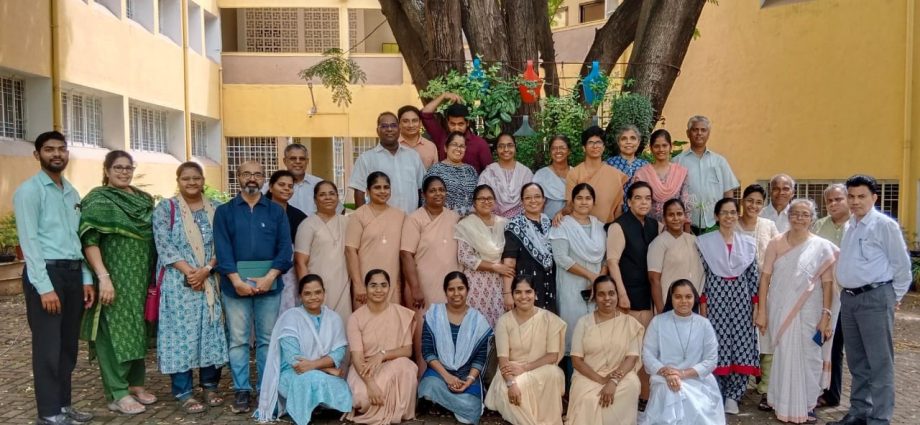By Vasantha Prathipati
Pune, Sept 13, 2024: India’s newly enacted criminal laws expand police authority that could impact civil liberties and increase case backlogs in the already strained judicial system, warn some Catholic lawyers.
Around 40 lawyer nuns, Brothers and priests from across India attended a training program on the impact of the criminal laws the country enacted on July 1. The Maharashtra State Lawyers Forum for Religious and Priests organized the Sept 6-7 training program at Ishvani Kendra, Pune.
The program described the new criminal laws as “new wine in old bottles,” as they represent significant reforms in the legal framework by replacing the old ones.
The laws are the Bharatiya Nyaya Sanhita (Indian Justice Code), Bharatiya Nagarik Suraksha Sanhita (‘Indian Citizen Safety Code), and Bharatiya Sakshya Adhiniyam (‘Indian Evidence Act). They replaced the Indian Penal Code, Code of Criminal Procedure, and Indian Evidence Act – all legacies from the country’s colonial past.
Vijay Hiremath, a Mumbai High Court lawyer who analyzed the three laws at the program, explained that the old 19th century criminal laws needed overhauling as they failed to meet the challenges of modern society.
Over the years, the country witnessed proliferation of cybercrime, use of technology for crime, gender-based violence, environmental offenses, and economic crimes that needed to be adequately addressed, Hiremath said.
The meeting noted that the new laws have intact the fundamental principles underlying India’s legal system, reflecting continuity in the broader legal structure.
“Hence the underlying impact remains largely unchanged because the new sections effectively replace the old ones without altering the core outcomes.”
Modifications in procedural aspects, they foresee, may affect the efficiency and fairness of legal proceedings.
The new provisions cover the same issues and apply similar restrictions or penalties. For instance, if the previous law had a section penalizing certain behaviors, the new law introduces a different section with similar penalties and conditions. This replacement does not substantially alter the nature or extent of the legal restrictions.
The new provisions’ effect on individuals and institutions remains consistent with the old laws. “Even though the legal language or framework may have changed, the practical outcomes such as the limitations on freedoms, rights, and the types of punishments are effectively the same,” participants observed.
The new laws, they added, provide potentially harsher penalties, increased control and surveillance, reduced protections, ambiguous provisions, discriminatory impacts, and historical legacy. “No major changes, only sinister changes are made and these factors collectively may pose greater risks to individual freedom and justice,” they warned.
The program called for conducting awareness programs with civil society groups to educate citizens about the new laws’ impact,
It wants the Christian lawyers to collaborate with key stakeholders to advocate for law modifications and fairer legal frameworks.
Another suggestion is to join legal forums and advocacy groups to push for reforms and share insights and create online platforms for members to discuss developments, share experiences, and strategize.
The program also wants the lawyers to address mental health concerns to address rising suicides among priests and religious and understand causes and propose supportive measures.
It also called for developing strategies to safeguard through legal protections, security measures, and advocacy.












In the recent past we often hear news about bishop, priests, and nuns getting arrested in north Indian states. Are some of these lawyers go to their aid?